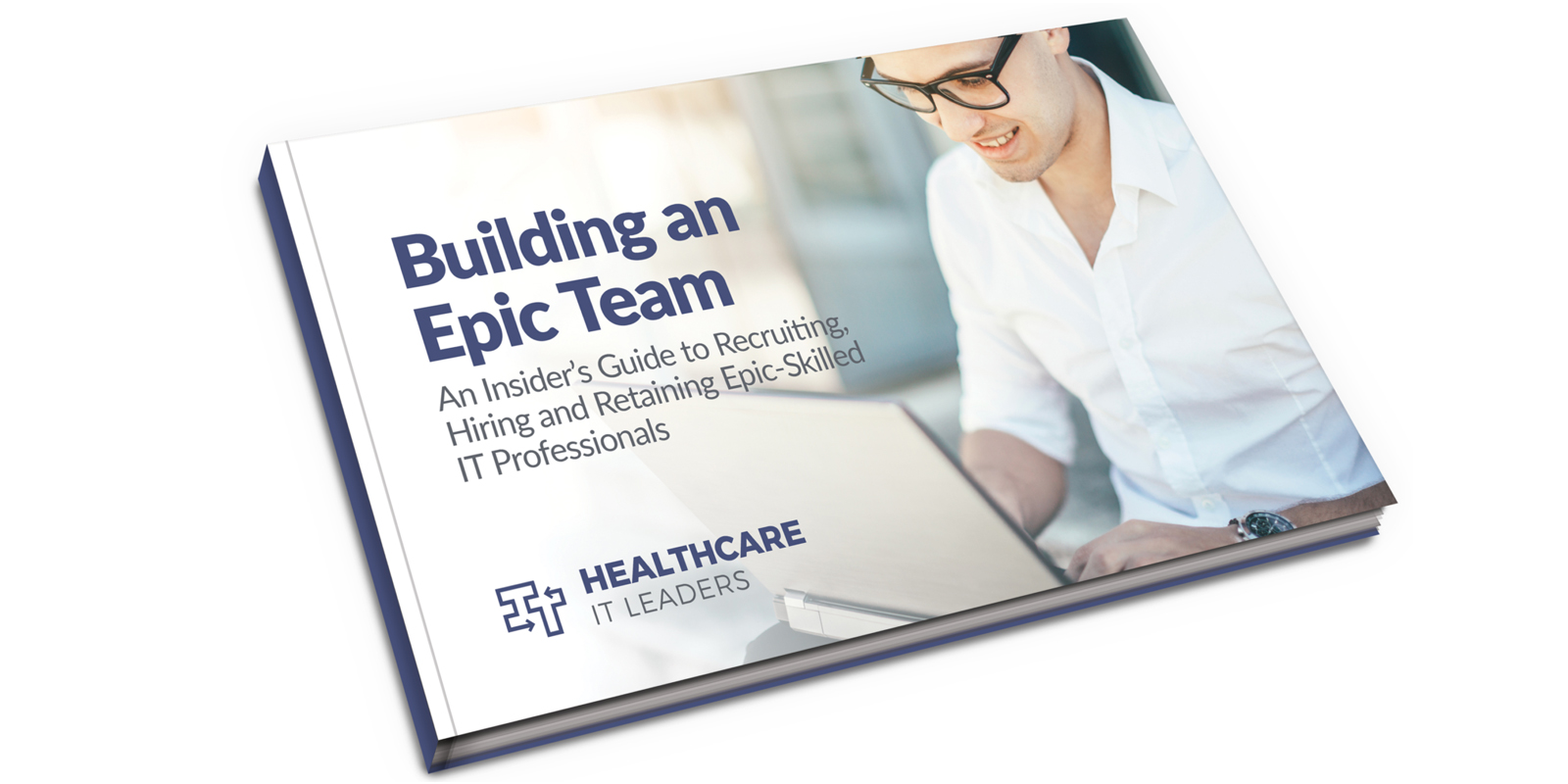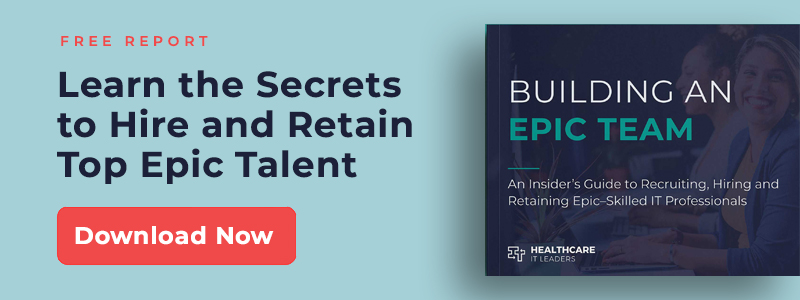8 Tips for Epic Staff Retention

Hiring and staffing for an Epic project is a significant undertaking, as outlined in our new eBook, Building an Epic Team. But after Go Live, hospitals and health systems face a different challenge: retaining their top Epic staff members for the long-haul.
“If you haven’t done your homework to retain your talent, you’re taking your eye of the ball,” says David Keith Butler, MD, former VP, Epic Optimization at Sutter Health. “The Epic and IT teams are your new hospital system. They are going to be the single biggest differentiator in healthcare over the next five years.”
Butler and other HIT executives agree that retention planning should begin as soon as an institution signs its Epic contract. “It’s never too early to begin defining your ongoing support model and the resources and budget you need to make that successful,” says Charles Podesta, CIO, UC Irvine.
>> Download the eBook: Hiring and Retaining an Epic Team
It’s not easy to keep top performers. As one hiring manager told us, “developers with Epic experience start to see dollar signs.” But all of the institutions we spoke with for our Epic hiring report make retention a cornerstone of their long-term staffing plan. Here is some of their best advice:
Recruit for Long-Term Fit. Hire cautiously and screen for cultural fit and attitude in addition to skill. Before committing to a costly relocation, understand the candidate’s motivation to live and work in your community, and use behavioral assessments to measure whether someone will work effectively in your organization. Veronica Zaman, an HR executive who led corporate hiring for Scripps Health during its Epic implementation, says "Technical skills are important, but we think behavioral skills and how you respond to our culture and environment is equally critical."
Offer fair market value base pay. At least annually, if not more frequently, check everyone’s contract rates and salaries to make sure you’re not paying last year’s rate. Organizations that keep pace with the compensation trends in their industry are also, not surprisingly, leaders in retention, according to benefits advisory firm, Willis Towers Watson.
Offer retention bonuses. Rewards for loyalty speak volumes. Offer retention bonuses if your hospital goes through a merger, around the most critical times of your Epic implementation or right after a go-live, when professional eyes can start to wander.
Provide training opportunities. Sending team members for additional Epic certifications shows a good-faith investment in their future. Cross-training also reduces risk for the institution, says Sue Schade, Principal, StarBridge Advisors, “so you don’t become reliant on one or two individuals for their knowledge of a certain module.”
Support work-life balance. Surveys consistently show that work-from-home opportunities are important to IT workers. Jamie Nelson, CIO, Hospital of Special Surgery says, “Think of your employees’ needs as well as your own. You have to up your game in this competitive market and be flexible for people who could work remotely or at home.”
Promote your stars. To keep top-performers, offer promotions that allow them to manage more people or more technology. Or acknowledge their performance by adding them to special teams or new projects to keep them engaged and encourage innovation.
Improve your hospital or department’s reputation. If you are consistently losing talent, you may have a reputation problem—either on your project or as an institution. Exit interviews, anonymous surveys, or even reputational websites, like GlassDoor, can help you identify root issues that need to be addressed.
Outline a Long-Term Vision. Most of your hires will naturally want to know what lies in store for them after your Epic Go Live. The ability to present a long-term view of their career path in your IT organization is critical. Sutter Health’s Butler advises: “Explain your vision and your strategy beyond the implementation, so employees can buy into it and envision themselves as being part of that change.”
